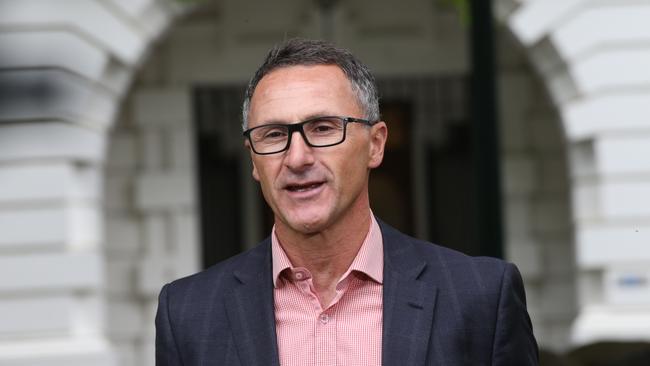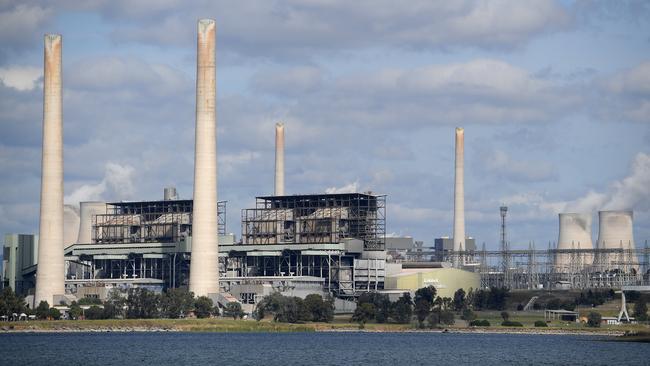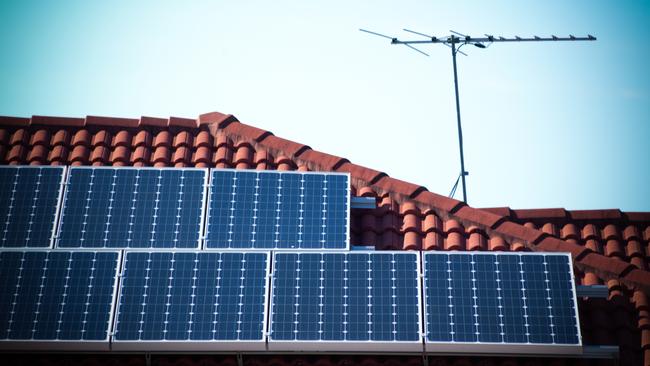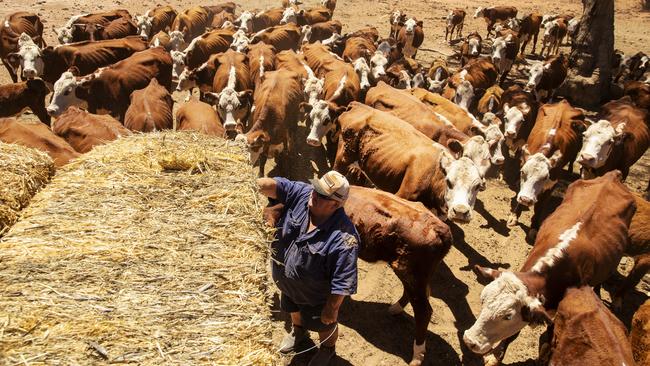Greens policy plan bans fossil fuel and sets target of 100 per cent renewable energy by 2030
Greens leader Richard Di Natale has decried coal as the modern-day asbestos and declared it must be banned. The party will release on Wednesday a radical manifesto laying out its agenda to abolish the coal industry — the lifeblood of the NSW economy.
NSW
Don't miss out on the headlines from NSW. Followed categories will be added to My News.
- Australia’s ruling elite deny the benefits of coal
- Australia shamed at World Economic Forum over coal use
The Greens have demonised coal as “the next asbestos” in a radical manifesto laying out their agenda to abolish an industry which is the lifeblood of the NSW economy.
Every coal power plant in NSW would be shut down over the next decade and coal exports ceased under the left wing activist party’s extreme plan to slash carbon emissions to below zero by 2040.
Leader Richard Di Natale will today launch the extreme climate policy, complete with a call to arms from Swedish school student Greta Thunberg, who sparked a global wave of classroom strikes, and famous nature documentary maker David Attenborough.
“We once used asbestos in our buildings because we thought it was safe. But we now know better, so we have banned it. Now it is coal’s turn,” the document states.

MORE NEWS
Pauline Hanson suggests Port Arthur massacre was a conspiracy
Family’s anxious search for missing Sydney man
Carl Williams’ daughter in saucy lingerie photo
But coal is not the only enemy, the Greens also want to “get Australia off gas” despite the chief scientist saying the fuel is an essential part of the future energy mix.
Other initiatives include a shift to electric cars with the planned phase-out of petrol car sales.
The plan would foist a $65 billion carbon tax and household compensation scheme on the Australian economy and introduce an immediate ban on new coal mines, fracking and conventional onshore and offshore gas and oilfields.

Last financial year coal exports delivered almost $17 billion to the NSW economy and was about $5 billion more valuable to the state than the next major export — education — which brought in $12.1 billion. Thermal coal exports reached 164.6 million tonnes, up 1.2 per cent on the previous year.
The Greens plan phases out thermal coal by setting a yearly limit on coal exports from 2020 reducing each year until it hits zero in 2030.
Each tonne of coal would require a permit to be secured by auction for the right to export coal according to a schedule forcing businesses to pay into a fund to smooth the effects of the death of the industry.
Senator Di Natale claimed the plan would create 170,000 new jobs — 55,000 of them in NSW.
“Unlike the major parties, the Greens have a plan to phase out coal exports and create a jobs boom in the renewable energy export industry.”

The Greens claim the coal industry can be replaced with the “clean energy exports of the future: renewable energy, transformed into hydrogen or ammonia or exported to Asia through underwater cables”.
Greens climate spokesman Adam Bandt said the plan was to “take on coal”.
The policy also includes a target of 100 per cent renewable energy by 2030 — doubling Labor’s commitment — and including support for households and businesses to install solar panels and batteries.
The Greens would set Australia’s emissions target at 63 to 82 per cent by 2030 on a trajectory to get emissions to “negative zero” by 2040.

The Coalition has committed to meet the Paris agreement reduction of 26 to 28 per cent by 2030 while Labor has promised to raise the target to 45 per cent. “Both targets fall woefully short,” the climate document states.
The party’s carbon price would “pick up where it was trashed by Tony Abbott” and mirror the European price which was about $30 a tonne.
The party also wants to establish a state-owned energy retailer Power Australia as well as buying back major power infrastructure such as the massive power lines that connect states and re-regulation of electricity prices.


